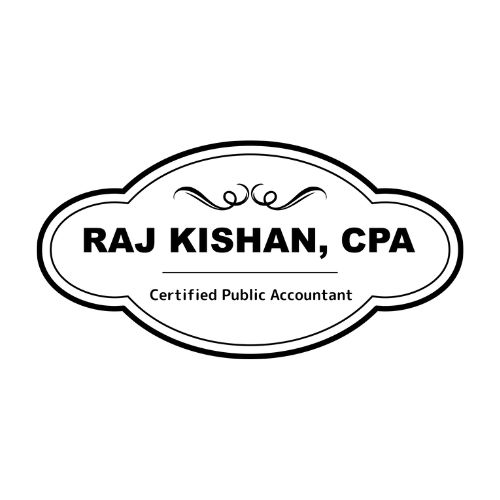
Rajkishancpa
Uploaded on Jan 17, 2025
Category
Economy & Finance
Discover the common types of tax problems, including unfiled returns, back taxes, and payroll tax issues, along with practical solutions like hiring a CPA, filing past-due returns, and using the IRS Fresh Start Program. Learn how to prevent future tax issues and why timely resolution is vital for financial stability.
Category
Economy & Finance
Facing Tax Issues? Types of Tax Problems and How to Resolve Them
Facing Tax Issues? Types of Tax
Problems and How to Resolve Them
Tax problems are common and can happen to anyone, from individuals to
businesses. Understanding the nature of these issues is the first step toward
resolution. Now we will explore various types of tax problems and offer
actionable ways to address them professionally.
Types of Tax Problems
Unfiled Tax Returns
Failing to file tax returns on time is a common issue. This can lead to
penalties, interest, and legal actions from the IRS. It may also create
challenges for future tax compliance.
Back Taxes
Back taxes occur when you owe taxes from previous years. If not
resolved, the IRS may impose liens or levies on your property or bank
accounts.
Tax Audits
A tax audit happens when the IRS reviews your financial records to
ensure accuracy. Audits can be stressful, especially if discrepancies are
found.
Tax Debt
Unpaid tax debt can quickly grow due to interest and penalties. It can
lead to garnished wages, frozen accounts, or property seizures.
Incorrect Tax Filing
Errors in filing, such as incorrect deductions or unreported income, can
result in penalties. They might also trigger an audit.
Payroll Tax Issues
Businesses often face payroll tax problems when they fail to properly
withhold or deposit employee taxes. This can lead to steep fines and IRS
intervention.
Penalties and Interest
The IRS imposes penalties for late payments, late filings, and incorrect
information. These fines, coupled with interest, can become
overwhelming over time.
Tax Liens and Levies
A tax lien is a legal claim on your property due to unpaid taxes. A tax
levy allows the IRS to seize your assets, such as wages or bank funds, to
settle your debt.
How to Resolve Tax Problems
Hire a CPA or Tax Professional
A Certified Public Accountant (CPA) or tax attorney can help navigate
complex tax laws. They can communicate with the IRS on your behalf
and find the best resolution.
File Unfiled Tax Returns
Start by filing all past-due tax returns. Even if you can’t pay the full
amount, filing stops additional penalties from accumulating.
Set Up a Payment Plan
The IRS offers installment agreements for those unable to pay taxes in
full. This allows you to make smaller, manageable payments over time.
Consider an Offer in Compromise
An Offer in Compromise (OIC) allows you to settle your tax debt for less
than what you owe. The IRS considers your income, expenses, and asset
equity before accepting an OIC.
Request Penalty Abatement
If you have a legitimate reason for not meeting tax obligations, such as
illness or a natural disaster, you can request penalty abatement. This
can reduce or eliminate penalties.
Appeal IRS Decisions
If you disagree with the IRS’s findings, you have the right to appeal. A
tax professional can guide you through the appeals process.
Pay Attention to IRS Notices
IRS notices should never be ignored. They provide details about your
tax issues and deadlines for resolution. Acting promptly can prevent
escalation.
Use the IRS Fresh Start Program
The Fresh Start Program offers relief for taxpayers struggling with back
taxes. It provides options like extended payment plans and lien
withdrawal under certain conditions.
Negotiate Payroll Tax Debt
For businesses, resolving payroll tax problems requires immediate
action. Work with a CPA to set up a repayment plan and avoid future
noncompliance.
Seek Innocent Spouse Relief
If your spouse or ex-spouse is solely responsible for a tax issue, you may
qualify for innocent spouse relief. This protects you from joint liability.
Preventing Future Tax Problems
Maintain Accurate Records
Keep detailed records of all income, expenses, and deductions. This
reduces errors and ensures compliance with tax laws.
File Taxes on Time
Timely filing prevents penalties and keeps your tax record clean. Use
reminders or tax preparation services to stay on schedule.
Use Professional Tax Software
Professional tax software minimizes filing errors and helps identify
deductions you may not be aware of.
Plan for Estimated Taxes
If you’re self-employed or have irregular income, plan for quarterly
estimated taxes. This avoids a large tax bill at year-end.
Understand Tax Laws
Stay informed about changes in tax laws. Consult a CPA if you’re unsure
about how new regulations affect you.
Communicate with the IRS
Proactively addressing tax issues with the IRS shows good faith. It may
also lead to better resolution options.
When to Seek Help
Not all tax problems can be resolved independently. Complex cases like audits,
significant debt, or legal actions require expert intervention. A CPA or tax
attorney can analyze your situation, negotiate with the IRS, and create a
tailored plan for resolution.
Why Resolving Tax Problems is Crucial
Ignoring tax problems can have long-term consequences. It affects your credit
score, financial stability, and even your ability to get loans. Addressing these
issues promptly not only saves money but also reduces stress.
Tax problems are challenging but not insurmountable. With professional help
and proactive measures, you can regain control of your finances and ensure
future compliance.
Contact RAJ KISHAN CPA INC. today!
https://rajkishan.cpa/
[email protected]

Comments